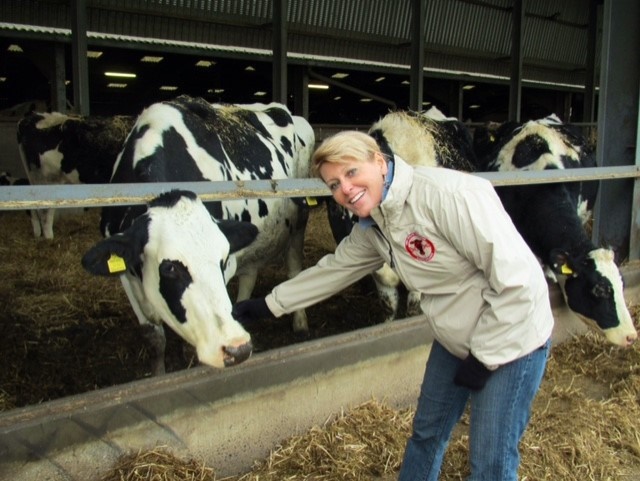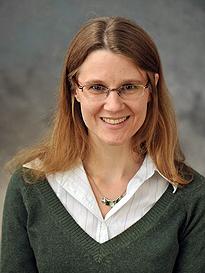
Healthier consumers, animals and ecosystems are the focus of three University of Guelph genomics research projects that received federal funding worth $1.5 million today.
The investment was announced today on campus by Kirsty Duncan, federal minister of science. In total, Duncan announced funding for 37 Genome Canada projects.
“Since taking office, our government has worked hard to return science and research to its rightful place. Today’s announcement is another step in that direction,” Duncan said.
“Genomics research is driving innovation across many sectors, including health, forestry, agriculture, fisheries, mining, energy and the environment. These exceptional projects we are investing in today encourage strong research partnerships and will help our economy and communities thrive.”
U of G president Franco Vaccarino said that such funding support from governments and other partners is critical for university research.

“From plant and animal science to food science to human health and genetics, life science research at this University has already benefited people, animals and our planet,” Vaccarino said.
“Now we’re building on those strengths to help address important challenges, notably feeding the world while sustaining the planet.”
Two awards will come from Genome Canada’s Genomic Applications Partnership Program.
Prof. Bonnie Mallard, Department of Pathobiology, received $426,622 to adapt high immune response technology developed for dairy cattle to help improve beef cattle health and welfare. The technology earned Mallard a 2017 Governor General’s Award for Innovation.
Dairy breeders use her patented test to identify animals with better natural disease immunity. Heathy livestock require less antibiotic treatment, combatting increasing antibacterial resistance and benefiting consumers.
She will work with the Semex Alliance, the Canadian Angus Association and the American Angus Association to adapt the test to combat bovine respiratory disease (BRD) in beef cattle. North American producers lose about $1 billion a year to BRD, the most common and costly disease of beef cattle raised on feedlots.

Integrative biology professor Mehrdad Hajibabaei aims to help protect Canada’s freshwater resources and biodiversity through improved genomic testing. He will use $840,000 from Genome Canada to validate environmental DNA meta-barcoding for ultimate use in monitoring the health of the country’s watersheds and rivers.
Canada is home to 20 per cent of the world’s freshwater supply, which is increasingly threatened by human population growth, farming and resource development.
Working with Environment and Climate Change Canada and the World Wildlife Fund Canada, Hajibabaei aims to use DNA meta-barcoding to generate biodiversity data from watersheds across the country and monitor human impacts.
He is among the principals in the Centre for Biodiversity Genomics (CBG), which uses genomics technologies such as DNA barcoding developed at U of G to identify species of living things planet-wide.

A third U of G project received $250,000 from Genome Canada’s 2017 Bioinformatics and Computational Biology Competition.
Under this project led by integrative biology professors Sarah Adamowicz and Paul Hebert, a team including U of G computing, informatics and statistics experts will create tools to help process huge volumes of DNA sequence data.
These bioinformatics tools will help in monitoring environmental health and managing natural resources, including identifying pests, invasive species and pathogens. The researchers expect to benefit Canadian agriculture, forestry and fisheries, and help in decision-making in public health.
The three U of G projects will receive an estimated total of $4.2 million from Genome Canada and public and private partners, including Ontario Genomics.